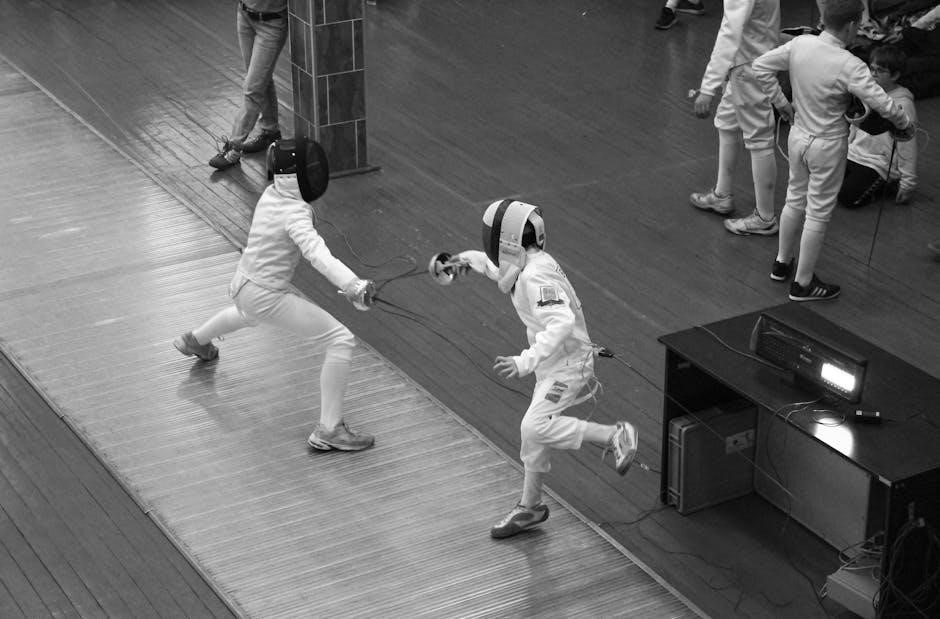Howard Lederer, a respected professional, significantly contributed to Full Tilt Poker, notably co-authoring “The Full Tilt Poker Strategy Guide: Tournament Edition.”
This guide, alongside other poker stars, quickly became an industry standard, showcasing Lederer’s expertise and solidifying Full Tilt’s reputation.
The Rise of Full Tilt Poker
Full Tilt Poker rapidly ascended as a dominant force in the online poker world, fueled by endorsements from renowned professionals like Howard Lederer. The platform distinguished itself by featuring these players not just as faces, but as active contributors to strategic content.
“The Full Tilt Poker Strategy Guide: Tournament Edition” exemplified this approach, offering insights directly from top players. This collaborative effort, including Lederer’s contributions, quickly established the guide as a cornerstone resource for serious tournament players, boosting Full Tilt’s prestige.
Howard Lederer’s Role in Full Tilt
Howard Lederer was a pivotal figure at Full Tilt Poker, extending beyond simply being a sponsored pro. He actively shaped the platform’s strategic identity, most notably as a key author within “The Full Tilt Poker Strategy Guide: Tournament Edition.”
Lederer’s involvement lent significant credibility to the guide, attracting players eager to learn from a respected professional. His contributions helped establish Full Tilt as a hub for serious poker strategy and education.

Lederer’s Tournament Strategy Foundations
Howard Lederer’s contributions to “The Full Tilt Poker Strategy Guide” focused on core tournament concepts, providing players with a solid base for success.
Understanding ICM (Independent Chip Modeling)
Howard Lederer’s insights within “The Full Tilt Poker Strategy Guide” emphasized the critical importance of ICM in tournament play. He detailed how chip values aren’t linear, shifting dramatically as the bubble approaches.
Lederer explained that ICM dictates decisions based on equity realization, not simply chip count, influencing calls and folds near the final table. Mastering ICM is vital for maximizing long-term profitability.
Stack-to-Pot Ratio (SPR) Analysis
Howard Lederer, in “The Full Tilt Poker Strategy Guide,” highlighted SPR as a key tool for adjusting preflop and postflop ranges. He explained how a low SPR favors all-in or fold strategies, while higher SPRs allow for more complex play.
Lederer stressed understanding SPR’s impact on hand selection and bet sizing, enabling players to exploit opponents and optimize their own equity in various tournament stages.

Early Stage Tournament Play ー Lederer’s Approach
Howard Lederer advocated for a tight-aggressive style early on, focusing on strong starting hands and avoiding unnecessary risks in the initial blind levels.
Preflop Hand Selection
Howard Lederer’s preflop strategy, detailed in “The Full Tilt Poker Strategy Guide,” emphasized a disciplined approach. He stressed the importance of playing premium hands – high pairs, AK, AQ – from early positions.
Lederer advised widening the range slightly from later positions, but cautioned against speculative hands without strong potential. He believed a solid foundation built on strong starting hands was crucial for navigating the early stages and preserving chips for later, more critical phases of the tournament.
Navigating Early Blind Levels
Howard Lederer, in “The Full Tilt Poker Strategy Guide,” advocated for a tight-aggressive style during early blind levels. He emphasized avoiding unnecessary risks with marginal hands, focusing instead on value betting strong holdings.
Lederer cautioned against overplaying hands out of position and encouraged players to observe opponents, gathering information about their tendencies. He believed patience and selective aggression were key to building a stack and surviving the initial stages of the tournament.

Mid-Stage Tournament Strategy ⏤ Lederer’s Insights
Howard Lederer’s insights, within the guide, stressed adapting to increasing blinds, employing strategic stealing, and exploiting tighter opponents’ predictable play.
He advocated for calculated aggression to accumulate chips as the field thins.
Stealing Blinds and Re-Stealing
Howard Lederer, in “The Full Tilt Poker Strategy Guide,” emphasized blind stealing as a crucial mid-stage tactic, recognizing its profitability with escalating blinds and increasing antes.
He detailed position-dependent ranges for stealing, advocating wider ranges from late positions and tighter ones from early positions.
Lederer also highlighted the importance of re-stealing, countering initial steal attempts, and exploiting opponents’ tendencies to overfold, maximizing value and chip accumulation.
Playing Against Tight Players
Howard Lederer, within “The Full Tilt Poker Strategy Guide,” advocated exploiting tight players’ predictable ranges by applying increased aggression and selective bluffing.
He stressed value betting strongly when holding a legitimate hand, as tight players are prone to folding to aggression without strong holdings.
Lederer advised widening stealing ranges against tight opponents, capitalizing on their tendency to defend their blinds infrequently, and maximizing preflop advantage.

Late Stage Tournament Play ⏤ Lederer’s Expertise
Howard Lederer’s contributions to “The Full Tilt Poker Strategy Guide” emphasized adapting to shifting dynamics, particularly during the crucial bubble and short-stack phases.
Bubble Play Dynamics
Howard Lederer’s insights, detailed within “The Full Tilt Poker Strategy Guide,” highlight the critical importance of understanding bubble play. He stresses exploiting tighter play from opponents fearful of missing the money.
Lederer advocates for increased aggression against these players, recognizing their reluctance to risk elimination without a payout. He emphasizes adjusting ranges and applying maximum pressure to capitalize on their cautious approach, ultimately increasing your chip stack.
Short Stack Strategy
Howard Lederer, in “The Full Tilt Poker Strategy Guide,” dedicates significant attention to short-stack play, recognizing its prevalence in tournaments. He advises a push/fold strategy, carefully calculating ranges based on stack size and blind levels.
Lederer stresses avoiding marginal spots and focusing on maximizing value with strong hands. He emphasizes understanding implied odds and opponent tendencies to make profitable all-in decisions, effectively navigating the late stages with limited chips.

Final Table Strategy ⏤ Lederer’s Perspective
Howard Lederer’s contributions to “The Full Tilt Poker Strategy Guide” cover crucial final table dynamics, including heads-up play and potential deal negotiations.
He emphasizes adapting to varying stack depths and opponent styles for optimal results.
Heads-Up Play Fundamentals
Howard Lederer, within “The Full Tilt Poker Strategy Guide,” details heads-up play as a highly aggressive, dynamic battle requiring significant adaptation.
He stresses widening your starting hand range considerably, understanding pot odds, and exploiting opponent tendencies.
Lederer advocates for frequent bluffing and re-bluffing, alongside a keen awareness of stack sizes and implied odds, crucial for maximizing equity in one-on-one situations.
Position becomes paramount, and understanding your opponent’s range is key to success.
Negotiating Deals
Howard Lederer, in “The Full Tilt Poker Strategy Guide,” emphasizes deal-making at final tables as a complex negotiation, not simply a chip-chop calculation.
He advises players to understand their individual equity, considering skill advantages and ICM pressure.
Lederer stresses the importance of knowing your opponents’ motivations and willingness to compromise, leveraging information to secure a favorable outcome.
Accurate chip counts and realistic assessments of each player’s chances are vital for successful deal negotiations.

The Full Tilt Poker Strategy Guide: Lederer’s Contributions
Howard Lederer authored chapters within “The Full Tilt Poker Strategy Guide,” sharing his tournament insights alongside other prominent pros, establishing a valuable resource.
Specific Chapters Authored by Lederer
Howard Lederer’s contributions to “The Full Tilt Poker Strategy Guide: Tournament Edition” were substantial, offering players a deep dive into his strategic thinking. While specific chapter titles aren’t readily detailed, his authorship signifies a focus on advanced tournament concepts.
Lederer likely covered areas like ICM, stack-to-pot ratio analysis, and adapting to different stages of a tournament, reflecting his renowned expertise. The guide benefited immensely from his insights, becoming a cornerstone for serious players.
Lederer’s Unique Strategic Concepts
Howard Lederer, within “The Full Tilt Poker Strategy Guide: Tournament Edition,” likely presented concepts emphasizing adaptability and exploiting opponent tendencies. His approach wasn’t about rigid rules, but understanding underlying principles and adjusting accordingly.
He probably detailed nuanced plays, focusing on maximizing expected value in complex situations. Lederer’s unique perspective, honed through years of high-stakes play, offered a refreshing contrast to more conventional poker strategy.

The 2011 Full Tilt Poker Scandal & Lederer’s Involvement
Howard Lederer faced accusations from the U.S. Justice Department regarding defrauding players of over $300 million, severely damaging his reputation and Full Tilt’s image.
The DOJ Indictments
The Department of Justice’s 2011 indictments targeted key Full Tilt Poker executives, including Howard Lederer and Chris Ferguson, alleging a massive fraud scheme.
These charges centered around accusations that the company knowingly operated while insolvent, using player funds to pay themselves and other stakeholders. The DOJ claimed over $300 million was misappropriated, leaving players unable to access their deposits.
Lederer, a prominent figure associated with the strategy guide, became a central figure in the legal fallout, facing severe consequences for his role in the scandal.
Impact on Lederer’s Reputation
The Full Tilt Poker scandal irrevocably damaged Howard Lederer’s once-respected reputation within the poker community. Previously lauded for his strategic insights, including contributions to the strategy guide, he faced widespread condemnation.
His association with the fraudulent activities led to a significant loss of trust, impacting endorsements and opportunities. Many players felt betrayed, viewing his actions as a breach of ethical conduct.
Lederer became a symbol of the scandal’s deceit, enduring lasting damage to his public image.

Lederer’s Post-Full Tilt Career
Howard Lederer eventually returned to the poker scene, participating in tournaments after a period of absence following the Full Tilt scandal’s fallout.
Return to the Poker Scene
Howard Lederer’s re-emergence into the poker world was gradual, marked by participation in smaller tournaments after a prolonged period away from high-stakes play. Despite the shadow of the Full Tilt scandal, he demonstrated a continued passion for the game.
His return wasn’t immediately met with universal acceptance, but Lederer persevered, seeking to rebuild his reputation through consistent play and strategic contributions. He aimed to demonstrate his enduring skill and knowledge, previously showcased in works like “The Full Tilt Poker Strategy Guide.”
Current Status and Activities
Howard Lederer continues to participate in select poker events, primarily focusing on tournaments, though his presence is less frequent than in his prime. He occasionally shares strategic insights, drawing from his extensive experience and contributions to resources like “The Full Tilt Poker Strategy Guide.”
While largely maintaining a lower profile, Lederer remains a recognizable figure within the poker community, occasionally engaging with fans and fellow players, demonstrating a continued involvement in the game he helped shape.
Analyzing Lederer’s Playing Style
Howard Lederer was known for aggressive play, frequent bluffing, and a keen ability to read opponents – skills detailed in “The Full Tilt Poker Strategy Guide.”
Aggression and Bluffing Frequency
Howard Lederer’s playing style, as outlined in “The Full Tilt Poker Strategy Guide: Tournament Edition,” heavily emphasized aggression. He wasn’t afraid to apply significant pressure, often employing a high bluffing frequency to disrupt opponents and seize control of pots.
This wasn’t reckless abandon, but a calculated approach, leveraging reads and understanding tournament dynamics. Lederer believed in forcing difficult decisions, maximizing value when ahead, and exploiting perceived weaknesses, making him a formidable player.
Reading Opponents
Howard Lederer’s success, detailed within “The Full Tilt Poker Strategy Guide: Tournament Edition,” stemmed from exceptional opponent reading abilities. He focused intently on betting patterns, timing tells, and physical cues to decipher opponents’ hand ranges and intentions.
Lederer didn’t rely solely on mathematical models; he combined them with astute observation, adapting his strategy based on individual player tendencies. This allowed him to exploit weaknesses and make profitable decisions consistently.

Key Takeaways from Lederer’s Strategy
Lederer’s strategy, outlined in “The Full Tilt Poker Strategy Guide,” emphasizes adaptability and a strong understanding of game theory, crucial for tournament success.
Importance of Adaptability
Howard Lederer’s contributions to “The Full Tilt Poker Strategy Guide” consistently highlight the necessity of adapting to evolving game dynamics. He stresses that rigid adherence to pre-defined plans is detrimental.
Successful tournament players must analyze opponents, adjust to stack sizes, and recognize shifting table conditions. Lederer advocates for a fluid approach, emphasizing that understanding and reacting to these changes is paramount for long-term profitability and consistent results.
Bankroll Management Principles
While specific details aren’t explicitly detailed in readily available summaries, Howard Lederer’s overall poker philosophy, reflected in “The Full Tilt Poker Strategy Guide,” implicitly supports sound bankroll management.
He emphasizes minimizing risk and maximizing longevity. This suggests a conservative approach to buy-ins, ensuring sufficient funds to withstand inevitable downswings. A robust bankroll allows players to navigate variance and capitalize on profitable opportunities without fear of ruin.
Resources for Further Study
“The Full Tilt Poker Strategy Guide” itself is a key resource, alongside classic texts like “Super/System.” Explore online training sites for modern insights.
Recommended Books and Articles
“The Full Tilt Poker Strategy Guide: Tournament Edition”, co-authored by Howard Lederer, remains a foundational text for serious tournament players. Consider pairing it with David Sklansky’s “The Theory of Poker” for a comprehensive understanding of game theory.
Additionally, explore older classics like Doyle Brunson’s “Super/System” – referenced alongside the Full Tilt guide – to appreciate the evolution of poker strategy. Articles by Lederer himself, if available, offer unique perspectives.
Online Training Sites
While Howard Lederer’s contributions are best accessed through “The Full Tilt Poker Strategy Guide: Tournament Edition,” supplementing with modern online resources is beneficial. Sites like Run It Once and Upswing Poker offer advanced tournament content.
Look for courses focusing on ICM and stack-to-pot ratio analysis – key concepts Lederer championed. Consider exploring training from players influenced by his strategic approach to enhance your game.
